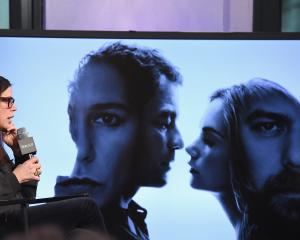
1. Anytime local police come up against federal police, the feds are always wrong, unless the show is set in the American South.
2. Anytime the local guy gets a crime scene taken away from him by the feds, he is always on to an important clue the big boys will completely miss.
2a. The local guy's only response is to solve the crime the feds can't solve by acting just outside the law.
These things occur on television, so are invariably true.
There must have been a time - a first time - that an FBI man walked on to a crime scene and flashed his badge, to the intense chagrin of local detectives.
That moment should have been very thoroughly covered from every possible angle in J. Edgar - but it isn't.
J. Edgar is a biographical drama, directed by Clint Eastwood and written by gay rights activist Dustin Lance Black, focusing on the career of FBI director J. Edgar Hoover.
It will play on Sky Movies next Saturday evening.
And there are a couple of things to say about it.
The first is that the film dropped the ball on the badge-flashing crime scene local/feds issue.
Perhaps that was because Clint was concentrating on his famous ''empty chair'' speech he was to give at the 2012 Republican National Convention, just a year after this film was released.
Maybe.
The second matter is that it features some famous actors.
Leonardo DiCaprio is the driven, slightly unhinged and apparently gay J. Edgar.
The redoubtable Dame Judi Dench is his mother.
The fabulous Naomi Watts is ummmm ... some lady or other in the movie.
The film opens with J. Edgar in his office, his advanced years clear from the amount of prosthetic make-up plastered across Leonardo's face.
A writer named Agent Smith is called in to take dictation of the story of the origin of the FBI.
That slightly clumsy device sets the scene for a lesson in American history, beginning with a series of communist bombings in 1919.
It follows Hoover's zealous work rounding up foreign and domestic radicals; the Lindbergh kidnapping; and his leverage of the Kennedys using embarrassing wiretap transcriptions.
And it makes clear Hoover's determination to root out subversion.
Under his leadership, the FBI spied on tens of thousands of suspected subversives and radicals.
And why not? What else is there to do on a quiet Wednesday afternoon?
J. Edgar received mixed reviews - and the movie is a little mixed. Get a series of Breaking Bad from the DVD shop instead.
Gee, it's good.
- Charles Loughrey





